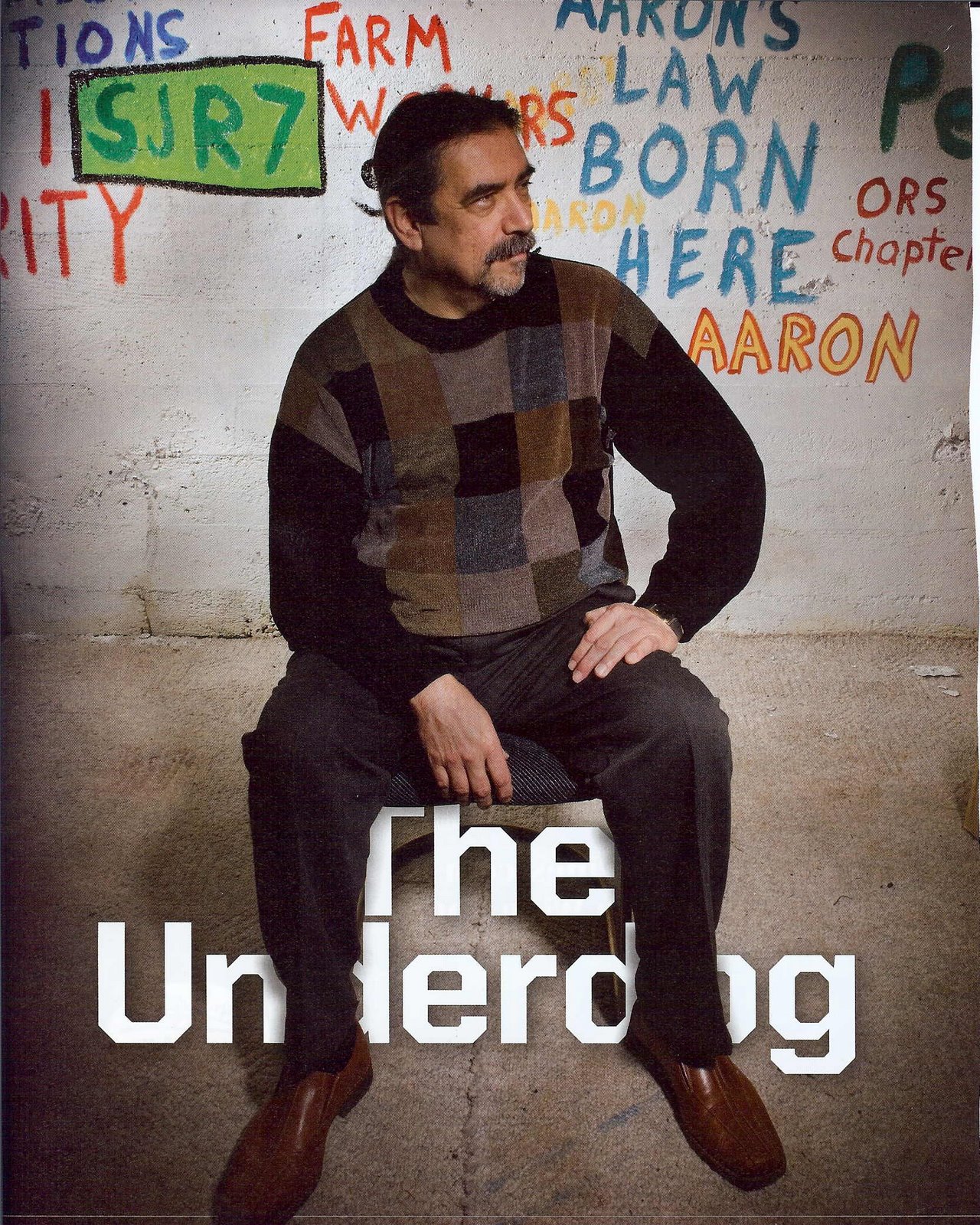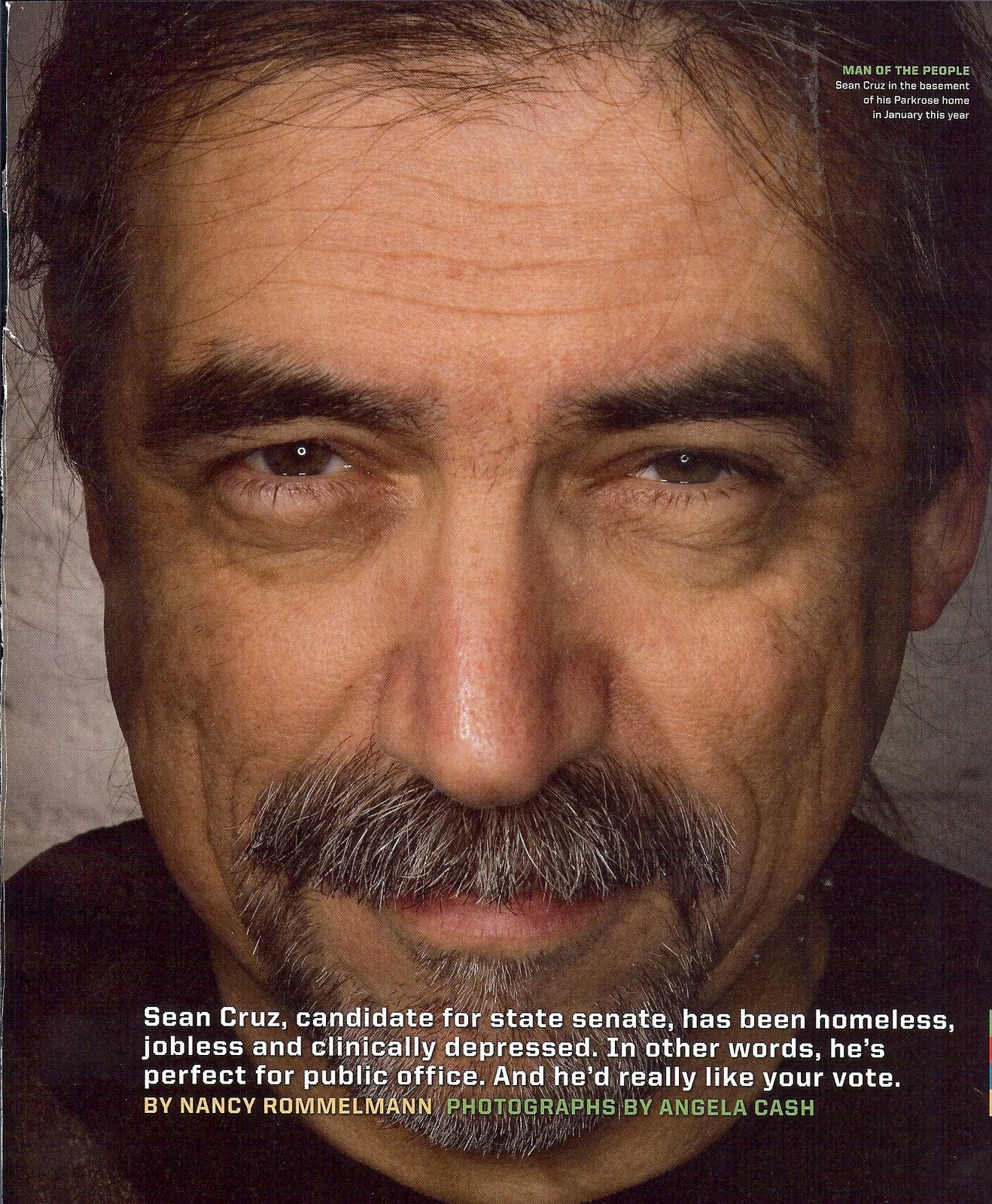Portland, Oregon--The Oregonian published an article titled "In Oregon and U.S., green groups are mostly white" yesterday (Sunday), by Scott Learn.
The story begins: "In the mainstream green movement, being any color but white can be a little lonely," and goes on to detail the utter lack of diversity among both paid staff and board members in the Oregon environmental community.
The Oregonian notes that nonwhites active in the environmental movement tend to engage with environmental justice organizations, around issues like asthma and pollution, but that they are as concerned about mainstream environmental issues as are whites.
The fact is that nonwhites are far more likely to live in poorer neighborhoods, where lead paint, freeway exhaust, improperly-cleaned-up meth labs, and the impact of industrial operations are daily facts of life. These are the central concerns of environmental justice.
The Oregonian story notes that career advancement for nonwhites in mainstream environmental organizations is highly problematic (see link below).
The same problem occurs in the OLCV's candidate endorsement process.
My response to the OLCV's candidate questionnaire last November included these remarks on the topic, where I noted that the issue of environmental justice (SB 420) didn't even make the OLCV's 2007 legislative scorecard (I didn't get the endorsement):
2008 Oregon League of Conservation Voters
Endorsement Questionnaire for Legislative Candidates
What experience do you have working on environmental issues that will be relevant to your legislative voting record?
Since 2003, I have provided staff support for Senator Gordly as she raised the issue of environmental justice and sought establishment of a statewide Environmental Justice Task Force (SB 420, passed 2007).
Had I been a voting member of the Senate in 2007, I would have supported OLCV across the broad reach of its concerns and added leadership on environmental justice issues to OLCV’s legislative agenda.
What environmental issues do you plan to emphasize in your campaign?
I will emphasize environmental justice issues, environmental issues related to the war in Iraq, and the connection between Oregon and the environmental health of post-Katrina New Orleans and the Gulf Coast. What matters there should matter here.
I will also probably draw upon my experiences walking solo through the entire Columbia Gorge in 2002, starting from Vancouver and walking through Portland parallel to I-84 all the way to the far side of Pendleton (it took me three weeks), and a childhood spent amid California orchards, farms, redwoods, vineyards and a dying San Francisco Bay fishery.
Honestly, with the nation still locked into two foreign wars when I take office, the already-visible impact of the Bush Administration’s catastrophic domestic and foreign policy failures on Oregon and on Oregonians will have to be addressed and dealt with.
Oregon‘s entire military community is suffering terribly. The stresses and real-world losses of many of its active-duty members, of its veterans and their families is reaching back even to veterans of previous conflicts.
This is where the conscience of the State needs to be.
The announcement that another 3500 Oregonians and their families will continue to shoulder the burdens of war virtually all on their own dominates my thinking as I respond to the OLCV questionnaire, and I want to apologize here for not having the time to respond to the questions as fully as I would like (my campaign just began earlier this week).
I hope to clarify my statements regarding environmental concerns in the course of the interview.
I am writing as the father of two Army National Guard soldiers, first ordered deployed to Iraq four years ago this month:
My chief concern is the fact that we Oregonians are knowingly sending many of these soldiers off to get their lives ruined, and that we are doing so knowing that we are not doing enough to help either the troops or their families that have gone before them.
The 3,500 soldiers we are about to send off to the war realize this fact, and they have little reason to expect that we Oregonians will value their sacrifice enough to cover their backs.
The focus for the month of December will be on what it always is--holiday shopping and holiday travel.
Much of the holiday shopping involves the purchase of goods made or grown in foreign nations. This does nothing to strengthen the nation in either time of war or peace.
Most of the holiday travel involves the purchase of fuel that directly fills the coffers of the nation's enemies. I can tell you that I personally do no holiday traveling.
The nation struggles with the cost of gasoline at the pump, is locked into a war to keep the price under $ 3.00 a gallon. Nothing gets people more upset than seeing a nickle bump in the cost of fueling their private motor vehicle.
Meanwhile, it costs the US taxpayer one hundred dollars a gallon to get diesel into Afghanistan. That's right, $100 a gallon, but who cares?
These Oregon soldiers and their families know that they are going into the meatgrinder, making sacrifices for people who will begrudge every nickle spent on services for veterans and their families on down the line, for people who will make absolutely no personal sacrifice in return.
Who among us will these courageous people look to? Who will be there for them?
These are important questions, and one that we must settle among ourselves here in Oregon.
Ending these wars is completely out of our control. As a consequence of its relatively small population, its distance from the national Capitol and the factor of time zones, Oregon rarely has a meaningful role either in the selection of presidential candidates or in the election of the President of the United States.
We also lack the clout that comes from the presence of large military bases or defense contractors.
The one thing that is entirely in our Oregon hands is how we will address the needs of the troops and their families, how we will address the needs of those that have already served, those who are serving and those who will serve.
This is our mutual responsibility, and we are failing the troops and their families.
We are failing them both individually and collectively.
If elected or re-elected, will you take leadership in the legislature specifically by working to educate and persuade other legislators to vote pro-environment? If yes, are there particular issues you would like to advance? Are there any environmental issues for which you find the environmental position problematic?
The Portland delegation is solidly “pro-environment,” needs little persuasion or education on the topic, apart from environmental justice issues; b) yes, environmental justice issues, and the impact of the war in Iraq on Oregon’s environment (shrinking budgets, for example); c) generally speaking, regarding problematical environmental positions, no.
However, the fact that OLCV missed the entire environmental justice discussion in 2007, that SB 420 is completely absent from the OLCV 2007 Environmental Scorecard, indicates to me that OLCV’s interests fall short of a complete match with the concerns of the residents of Senate District 23.
In the closing weeks of the 2007 session, as we moved SB 420 through the legislative process, culminating more than a decade of work by Senator Gordly, Eugene’s Trainsong neighborhood was in the news, illustrating the fact that environmental justice is a statewide concern.
Senate District 23’s constituents have a great deal of constant exposure to noise, pollution and contaminants emanating from the I-84 and I-205 transportation corridors, from the rail lines and from the Portland airport that many others do not share.
Within 500’ of my front door is a traffic arterial, a rail line and the I-84 freeway, and many Senate District 23 residents have it worse.
Much of the housing in Senate District 23, including my own home, was built prior to the ban on lead paint.
Many of our residents also live with the aftermath of the meth-lab plague, in rental property that has not been properly identified and cleaned up. People are living in those properties unaware of the danger.
Environmental legislation that I am likely to introduce would be related to urban issues such as these.
I would be highly supportive of other legislators’ leadership on the broad scope of issues of interest to the OLCV.
Now that Measure 49 has passed, what do you believe is the single most important step to improve Oregon’s land use system while ensuring fairness for all Oregonians?
I have seen the following phrase attributed to both Tom McCall and Oswald West. It describes the strategic vision that Oregon should adopt and implement in improving the land use system:
“In the administration of this God-given trust, a broad protective policy should be declared and maintained. No local selfish interest should be permitted, through politics or otherwise, to destroy or even impair this great birthright of our People.”
As I noted in my commentary titled “Measure 37 and the Case for Affirmative Action” the issue of “fairness for all Oregonians” is highly subjective. Measure 37 in effect forced the state to adopt a definition of “fairness” that applied to a period when Oregon minorities were systematically excluded from homeownership outside of certain urban neighborhoods.
In my commentary titled “Oregon Measure 49 and the Department of Environmental Quality Pollution Advisory,” I noted that farmers and future farmers do not have the luxury of staying indoors when the air quality is bad, they have to work their land regardless of respiratory issues.
Here’s the link to the full commentaries:
http://blogoliticalsean.blogspot.com/2007_10_01_archive.html
Subscribe to:
Post Comments (Atom)






No comments:
Post a Comment